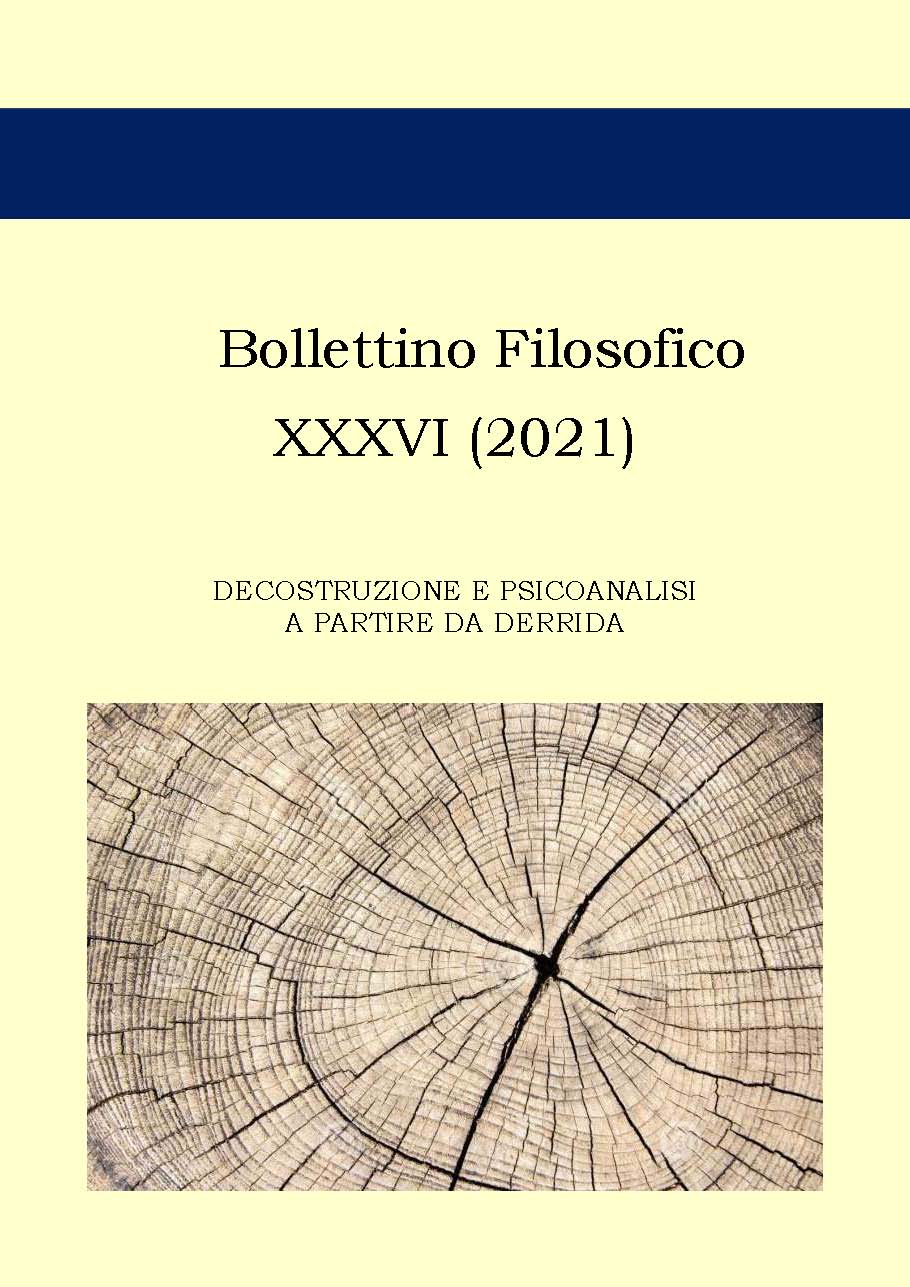Speculare sulla distruzione. Ontologie della pulsione di morte tra psicoanalisi, decostruzione e plasticità
Abstract
In Beyond the Pleasure Principle, Sigmund Freud contests August Weismann’s thesis according to which death and sexuality would be late acquisitions of life. By inscribing them at the very source of the living, Freud undermines the purity and originality of the concept of life implied in Weismann’s belief in the immortality of germ cells. For this reason, Freud’s essay has a special place in Jacques Derrida’s thought: according to him, the deconstruction of the ideality of life is at work in Beyond the Pleasure Principle, for it testifies that life is always haunted by its “other” (namely death). Today, the notion of death is structural to the research field in Derrida’s philosophy concerning the life science that has been lately named “biodeconstruction”. However, the notion of death drive has been recently re-evoked by Catherine Malabou, who has elaborated it within a neuroplastic framework that would constitute the critical standpoint of traditional ontology, psychoanalysis, and Derrida’s philosophy. This paper proposes that the concept of plasticity might supply instead relevant cues in relation to either Freud’s notion of death drive and “biodecostruction”.
Keywords: Biodeconstruction, Death Drive, Life Death, Neuroplasticity, Plasticity
Downloads
Bollettino Filosofico pubblica in internet, ad accesso aperto, con licenza:
|
|
CCPL Creative Commons Attribution |
L'autore conserva il copyright sul suo contributo, consentendo tuttavia a chiunque "di riprodurre, distribuire, comunicare al pubblico, esporre in pubblico, rappresentare, eseguire e recitare l'opera", purché siano correttamente citati l'autore e il titolo della rivista. L’autore, al momento della proposta di pubblicazione, è inoltre tenuto a dichiarare che il contenuto e l’organizzazione dell’opera è originale e non compromette in alcun modo i diritti di terzi, né gli obblighi connessi alla salvaguardia di diritti morali ed economici di altri autori o di altri aventi diritto, sia per testi, immagini, foto, tabelle, sia per altre parti di cui il contributo può essere composto. L’autore dichiara altresì di essere a conoscenza delle sanzioni previste dal codice penale e dalle leggi speciali per l’ipotesi di falsità in atti ed uso di atti falsi, e che pertanto Bollettino Filosofico è esente da qualsiasi responsabilità di qualsivoglia natura, civile, amministrativa o penale, e sarà dall'autore tenuta indenne da qualsiasi richiesta o rivendicazione da parte di terzi.
